Boosting Growth and Investment ReadinessIn the bustling streets of Brooklyn, New York, Annie's Ginger Elixir stands out as a beacon of health and wellness. Crafted with love and precision by Annie Bassin, this organic ginger-based tonic is a powerhouse of nutrients, enriched with hibiscus, elderberries, blueberries, cranberries, and currants. Packaged in distinctive square bottles or 1.5oz tube shots, the elixir is sold online, at farmers markets, and in stores nationwide.
With a mission to boost immunity and promote overall well-being, Annie's Ginger Elixir has captured the hearts and taste buds of health-conscious consumers nationwide. Annie and her partner, Allard Van Hoorn, envisioned taking their business to new heights. However, they faced a common hurdle for many aspiring entrepreneurs: the need for capital. Determined to secure funding for growth, they sought load readiness guidance from The Acceleration Project. They joined the TAP to Grow loan readiness program funded by Mizuho to access the support. TAP's team of experts, including consultants Stephanie Hurwitz and Ninfa Wilde, along with content specialist Jeff Willen, collaborated closely with Bassin and Allard to analyze their business from every angle. Through a review of financial data, business plans, and investor pitch decks, TAP identified key areas for improvement and developed a comprehensive action plan tailored to Annie's Ginger Elixirs specific needs. TAP helped Annie’s Ginger Elixirs understand their debt coverage ratios and to ensure that cash flows could comfortably cover debt service obligations. As a result, Bassin and Allard were better equipped to approach lenders with confidence. Moreover, TAP provided invaluable insights into several equity options, directing the duo towards ideal investor groups and refining their pitch deck to maximize appeal. The impact of TAP's support was strong. Armed with strategic insights, Annie's Ginger Elixir has flourished. Not only did they sustain their growth trajectory, but they are working on plans to enter the Japanese market. Their products continue to sell directly on their website, and on Amazon, and at Whole Foods and farmers' markets nationwide, further solidifying their presence in the health and wellness industry. The products are also available in Europe. The success story of Annie's Ginger Elixir serves as a testament to the transformative power of strategic guidance and collaboration. Through TAP's expertise, along with Bassin and Allard's dedication, this small Brooklyn-based business has evolved into a thriving enterprise poised for national and potential growth. “We have better organization and focus and have started thinking from a lender- and investor-centric perspective.” As they continue to inspire others with their commitment to health and vitality, Annie's Ginger Elixir stands as a shining example of entrepreneurial vision and resilience.
0 Comments
Listen Alert: TAP CEO and Co-Founder, Jane Veron, is featured on The Business of Giving Podcast1/3/2024 Listen Alert
TAP CEO and co-founder, Jane Veron is Featured on The Business of Giving Podcast. Denver Frederick is the Host of The Business Giving. The program is the only show of its kind that focuses on solutions to today’s complex social problems. Over 300 Chief Executive Officers from nonprofit and philanthropic organizations from across the country have appeared on the program. Click Here to Listen to the Podcast Legacy Volleyball Club provides athletic and after school programs for hundreds of kids in the Bronx each year. Founder, Joel Sanchez says his work with TAP has been a game-changer, helping him expand and grow. “Our journey with TAP has been guided by the intention of breaking down barriers and making our services available to a broader range of people, including those from the Hispanic community.” Watch the video below to learn more. Be a part of TAP's Annual Appeal by donating today - click HERE to help small business owners like Joel We are thrilled to share the recent selection of TAP CEO Jane Veron as a 2023 Women Worth Watching® in Leadership Award Winner by Profiles in Diversity Journal®. This accolade celebrates outstanding women leaders globally, acknowledging their unwavering commitment to their careers, families, communities, and the young professionals they mentor. Jane's dedication sets a shining example for leaders everywhere.
To mark National Women's Small Business Month we're bringing you the story of Kathleen Daly, former owner of Cafe Zoe in California.
CAFE ZOE'S STORY Kathleen Daly opened Cafe Zoe, a community coffee shop in the heart of Silicon Valley, in 2008. Kathleen had no prior experience running a small business, but for fifteen years she focused on the joy of community-building. She and her daughter Zoe created a beloved neighborhood establishment where all were welcome. Cafe Zoe hosted live music on the weekends and local art covered its walls. BUSINESS CHALLENGE Kathleen loved creating community and serving her customers, but she had not adequately focused on the financials of Cafe Zoe. She was thinking about selling the business and needed help improving operations and planning for the future. WHAT DID TAP DO? TAP’s partnership with San Mateo County Economic Development Association (SAMCEDA), an economic development agency focused on sustaining local economies, led to the work with Cafe Zoe. TAP consultants gave Kathleen the space and opportunity to think about the future of Cafe Zoe and consider different strategic options. They analyzed the cafe’s monthly cash flows to help Kathleen improve its finances. They also presented a source of comparable sale multiples to help Kathleen value the business. "They showed me that I could increase the value of my business by managing it a lot better. I wasn’t focused on making money[,] … just community building,” says Kathleen. “The work the consultants did was such a gift to me." TAP DELIVERABLES
Kathleen and Zoe decided they were ready for new challenges and sold Cafe Zoe in June 2023. Prior to her work with TAP, a business broker had recommended that Kathleen sell Cafe Zoe at a lower valuation. Kathleen knew her business was worth more. With TAP’s help, she and Zoe were able to increase sales and profitability, which led to a higher valuation and sale price. Kathleen is confident that Cafe Zoe’s new owner will sustain the culture of community-building that she and Zoe created. Today, she remains an active community volunteer, working hard to support those who work and live in her neighborhood. “It was so fulfilling to work with Kathleen," says TAP consultant Tom Bochenek. "It’s great that she was able to sell the business she had built. The café will remain such an important part of the community under new ownership.” Founded in 2012, The Acceleration Project (TAP) is a nonprofit that is laser-focused on supporting underserved small business owners and narrowing existing equity gaps based on race and gender. Our mission is to empower under-resourced small business owners and accelerate their success by providing impactful, customized strategic and tactical advice. We work one-on-one with individual businesses to provide tools and resources that create financial stability and accelerate growth. We also produce scalable programs that can be delivered through webinars, workshops and microsites. Our lean staff unlocks the power of an exceptional team of pro-bono consultants who seek to use their professional skills to make a meaningful impact. As the demand for our services continues to grow, we are expanding nationally to meet the need. TAP leverages its network of financial institutions, CDFIs, economic development agencies and corporate partners to get to scale and ensure sustainability of our work, and we also rely on fundraising to underwrite the cost of providing services and keep them accessible to all.
Position Summary: TAP seeks a Director of Development responsible for the execution of a strategic development plan to generate revenue from a variety of funding sources, including corporate, government and foundation grants and sponsorships, advisory board activities, events, and individual giving. The Director will work in partnership with the Chief Executive Officer, leadership team and board members to identify and cultivate major donor and sponsor relationships and secure support for the organization. The Director will forge ties with corporate, philanthropic and family foundations to secure long term multi-year funding, building capacity as well as programming. Additionally, the Director will work with other team members to identify and execute on funding opportunities to support new and existing initiatives, including our Annual Appeal and Spring Benefit. The Director will work collaboratively with the CEO and Leadership Team to evaluate TAP’s operational strategy and goals, adjusting development initiatives as needed to support those goals. This paid position is full-time, partially remote, with an expectation of 40 hours/week, with day-to-day flexibility. This individual will also be asked to attend in-person meetings in Westchester County, New York as well as in-person meetings with potential funders. To apply for this position: Please send your resume, cover letter and up to three work references to Molly Ardalan (mollya@theaccelerationproject.org) with ‘Director of Development’ in the subject line. Your cover letter should explain why you believe you are best suited for this position at The Acceleration Project. Responsibilities:
Work Environment:
There are so many reasons our consultants love working with small businesses. But it's best if we let them tell you, in their own words. Check out the video below. Meet some of the team behind our Fall for Small Business® work. We're thrilled to introduce our current TAP interns! Join us in welcoming these college students who share our commitment to empowering small business owners.  Rohan Zamvar comes to us from Brown University where he’s majoring in Business Economics and Data Fluency. So why did Rohan join TAP? He says, “I believe that small businesses are the backbone of our communities and I’m really excited to assist in any way that I can with TAP’s mission.”  Gia Maietta is a senior at the University of Miami, majoring in Marketing and minoring in Advertising. “I joined TAP because I come from a family of small business owners and know just how tough it can be to maintain and keep a family business running,” she says. “My background sparked my interest in working with TAP and I genuinely care about the mission.”  Finally, Amy Weinreich is a student at the University of Virginia majoring in Public Policy & Leadership and Spanish Linguistics. She joined TAP because she is passionate about the mission and believes small business growth is an important cause. Given her experience working with small businesses both in the US and abroad, she believes small businesses are at the heart of every community and she’s excited to continue her work by supporting TAP! Let's hear it for our Rohan, Gia, and Amy! We have no doubt that they’re destined for greatness. They will certainly make a difference in the lives of small business owners, their families, and communities. #TAPInterns2023 #EmpoweringSmallBusinessOwners #JourneyToSuccess #InternshipGoals #SmallBusinessMatters, #FallForSmall, #FallForSmallBusiness #consulting We're so excited to welcome our newest cohort of talented and driven consultants! Learn more about the refined expertise and diverse experiences that they are bringing to TAP.  Carolyn Bodner With a dynamic career spanning 35 years in creative production and management, Carolyn Bodner is a seasoned professional known for her ability to balance business acumen with creative development. As the owner of an international artist representative agency, Carolyn brings a wealth of marketing, management, and financial expertise to the table. Recognized for her ability to foster collaboration and empower teams, Carolyn has leveraged her artist’s ability to create narratives that resonate beyond the client’s expectations. Companies and clients that have benefited from her skills include Estee Lauder, Target, Marriott, Pfizer, Procter & Gamble, Cadillac and Macy’s. Carolyn is now enthusiastic about dedicating those same skills to the nonprofit community.  Anita Borkenstein Anita spent her professional career at JPMorgan Chase. She started as an Operations Management Trainee in the Commercial Deposit & Loan Operations department and worked her way up to Vice President and Systems Analyst on the Global Investment Banking Team. During this time, she also attended Fordham’s Gabelli School of Business, earning her MBA in Finance. Upon leaving the corporate world to stay home with her children, Anita became active in the community. She held leadership positions with the Edgemont Scholarship Council and PTA and volunteered at Shaarei Tikvah and Yonkers Partners in Education. She is the Co-Founder and former Co-President of Impact100 Westchester, a nonprofit, and is currently the Secretary of the Binghamton University Foundation. She holds a Bachelor of Arts in Economics from SUNY Binghamton.  Grace Dale Grace is a seasoned marketing leader with over 15 years of experience in payments and fintech. While at American Express, Grace held director roles overseeing acquisition and lifecycle marketing for the U.S. consumer card portfolio. As a marketing lead at Apple, she played a key role in developing multi-channel acquisition and engagement strategies for the launch of Apple Card. She has extensive experience working with cross-functional teams, including product, engineering, PR, finance, operations, and analytics. Grace also contributes her talents to the non-profit sector. She leads the marketing strategy for Asian Girls Ignite, a Denver-area organization focused on empowering AAPI girls and women, and she volunteers with the Cholangiocarcinoma Foundation. Grace received an MA in Accounting and a BA in Business Administration from the University of Texas at Austin.  Jorge Gonzalez Jorge's professional experience is centered on strategic planning, corporate finance, and business development. His key competencies include identifying opportunities, creating strategic solutions, and managing their execution with an emphasis on long-term sustainability and growth. Throughout his career, he has designed and implemented efficient planning processes and performance management systems. His expertise in data analysis and deriving valuable insights has consistently led to improved operational efficiency and business growth. Jorge has managed high-value transactions and strategic investments. His proactive approach, coupled with analytical skills, has resulted in successful regional expansion strategies and substantial business growth. Leadership for Jorge is about fostering team development; he is committed to nurturing talent, building high-performance teams, and promoting a collaborative work environment. His leadership style is centered around empowering others to reach their full potential. Beyond his corporate experience, Jorge possesses a profound passion for entrepreneurship and is deeply committed to leveraging his experience and skills to make a positive impact on small businesses. Jorge believes that economic growth lies in the prosperity of small-scale enterprises, and he is eager to contribute his insights and expertise to facilitate their growth and success. Jorge holds an MBA from Northwestern University's Kellogg School of Management and a Bachelor of Science in Industrial Engineering from Universidad de Lima. He has engaged in executive management training at MIT, Insead, Columbia University, and NYU, focusing on areas such as digital business strategy, marketing analytics, and disruption strategies.  Charlenne Gonzalez-Balow Charlenne is a technology and consumer goods leader with deep experience in strategic operations management and business transformation. Her strengths include leading and developing large cross-functional teams of up to 40, closing operational gaps, and leveraging feedback to deliver exceptional customer experience. Most recently she was at Qualtrics, an experience management software company, where she led a team of 13 to provide services to enterprise clients with up to $50 billion in revenue. Prior to Qualtrics, she served in Product and Strategy roles in which she worked closely with C-level executives to establish M&A processes and delivered multi-year strategic business plans. She has multi-industry experience- from working with non-profit to Fortune 500 companies. Charlenne received a bachelor’s in Finance from Indiana University and an MBA from The Tuck School of Business at Dartmouth. She currently resides in Chicago with her husband and son and in her spare enjoys weightlifting, traveling, and trying local restaurants. 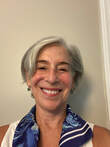 Karen Holzberg Karen Holzberg is a strategic advisor and business export and import consultant for the food industry at Camerican International, a subsidiary of the Gellert Global Group. She was formerly CEO and founder of KH International Inc. (KHI), a global leader in frozen and processed fruit procurement for the food industry, with offices in Georgia, Oregon, Chile, and China. KHI was founded in 1992 and sold to the Gellert Global Group in 2016. Working internationally, Karen has built food worldwide procurement and global sales with an emphasis on providing safe products to consumers worldwide. Karen is a graduate of Goucher College and has a Master’s in Community Health from Rollins School of Public Health at Emory University. 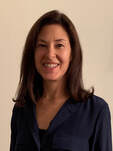 Joan Kantor Joan Kantor is an experienced marketing and communications strategist with over 13 years in a not-for-profit healthcare system. As a senior marketer, Joan enjoyed working closely with individual business leaders, her internal clients, to understand their department’s growth goals and pain points. She created measurable and effective marketing campaigns on a shoestring budget and consulted on business operations to ensure alignment with marketing objectives. She advised on branding and messaging and routinely led or collaborated on cross-functional teams to achieve desired outcomes. Joan's broad integrated marketing skills include paid and owned media strategy across multiple channels (digital, social, print, radio, cable, and streaming video) as well as content strategy and development for digital, video, and print media. She has knowledge of marketing analytics and interpreting results. Joan attended NYU School of Professional Studies where she completed a certificate program in digital media marketing. Prior to a successful career in marketing, Joan was a licensed teacher and teacher-trainer for K-12, college, and adult levels in New York and Madrid. She has an M.Ed. and M.A. from Teachers College, Columbia University, and a B.A. from Syracuse University. Joan serves as a mentor and Graduation Coach for a Yonkers high school student through Yonkers Partners in Education. In her free time, Joan enjoys yoga, knitting, movies, and learning about science and diverse cultures.  Elyn Kim Elyn is the Co-founder of Airess, a niche women's fashion and lifestyle brand that was founded in 2006. Airess is an embodiment of her style philosophy, a thoughtfully designed and curated collection which has been dubbed "best friends in a closet", the timelessly chic pieces of impeccable quality that anchor a woman's wardrobe. The Airess woman is confident and understatedly cool. A daughter of a diplomat, she was raised internationally, having lived in no less than six countries and many more cities. She attended Boston University and then Parson's School of Design and worked at Condé Nast, LVMH, and Bureau Betak, a fashion show production firm before launching her brainchild Airess. Two years ago, she moved to Amsterdam from the Bay Area and is delighted to share the international experience with her family. A visionary, Elyn empowers a woman on how she expresses herself visually to the world, a communication that happens even before a single word is spoken -- in her appearance, the styling of her home, or even through the art on her walls. She believes that finding one's authentic and elevated personal style can have a profound and positive impact on a person's well-being and a key component of being one's "best self" a universal concept that she believes, bridges different cultures and backgrounds. Having first-hand knowledge of running a small business, and much of what it entails, Elyn is excited to collaborate with a team to strategize and problem-solve for clients of TAP.  Meg Langan Most recently, Meg was Chief People Officer of Turbonomic, a leader in application resource management. She drove the strategic direction, development, and execution of global people strategy. Meg led human capital efforts, creating growth opportunities for ~735 employees while developing and implementing a more diverse and inclusive workplace. She recently completed the integration of employees into IBM following their $2.0 billion acquisition of Turbonomic. Prior to joining Turbonomic in 2020, as Chief of Staff to the Co-President at Cowen, Meg was responsible for driving strategic initiatives that enabled financial growth, enhanced diversity, and fostered a collaborative, high-performance culture. Her responsibilities included the design and implementation of a diversity hiring strategy as well as performance management and integration of an M&A boutique acquisition. She exercised FINRA supervisory responsibility for Investment Banking that included compliance, establishing policies and procedures, and overseeing trades and outside business activities. Meg has a demonstrated record of driving operations, working to achieve sustainable financial goals, aligning talent, and building company culture. In a variety of senior leadership positions, she has advised boards, managed cross-disciplinary teams, built consensus across business lines, and enabled changes that positioned companies for future success. Meg has deep finance expertise, including strategic and capital markets activity, from both the banking and the corporate perspective. She holds a BA Summa Cum Laude from Boston College and an MBA from Harvard Business School. 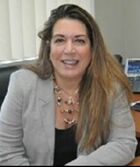 Adriana Leiro With extensive international and domestic experience as a human resources executive, Adriana has served as a strategic advisor to senior management teams, driving critical HR functions such as performance management, leadership development, compensation, and employee relations within multi-country organizations. She boasts a solid track record of successfully initiating and executing HR strategies that consistently deliver tangible business results. Fluent in both Spanish and English, she leverages her bilingual proficiency to effectively connect with diverse global teams and stakeholders. During her tenure as VP of International Human Resources at Bupa Latin America, Adriana led transformative efforts, including cultural shifts, organizational redesigns, and the development of robust performance frameworks and succession plans. Her achievements extend to successful reward administration, the implementation of HR digitalization and analytics, and overseeing the acquisition and integration of a mid-sized business in Brazil. As Vice President of Latin America Regional Human Resources at FirstData, she played a pivotal role in influencing global HR direction and aligning HR practices with business objectives. Her impact extends across various global organizations, reflecting her dedication to driving HR excellence and business success on a global scale. Adriana holds a Master's degree in Human Resources, graduating cum laude, from Universidad Catolica Andres Bello, along with a Bachelor's degree in Psychology from the same institution in Caracas, Venezuela.  Sandi McCann Sandi McCann is an accomplished entrepreneur and visionary with a strong background in marketing communications. In 2012, she successfully founded and scaled a multi-million-dollar home healthcare company. Under her leadership, the company became renowned for its care quality, reliability, professionalism, advanced caregiver training, and compassionate service. It quickly grew and became the top independently owned home care brand in the region. Facing growing complexities, Sandi turned to the Entrepreneurial Operating System® (EOS) for solutions. With this proven framework, she addressed issues, improved core processes, established accountability, and achieved better results. This effort led to a more balanced life and a revitalized sense of purpose. Having successfully sold her company, Sandi now dedicates her time to coaching, teaching, and facilitating entrepreneurial businesses. Today, she is a Professional EOS® Implementer, collaborating with entrepreneurs and their teams to help them achieve their business goals. She also volunteers her time to assist growing entrepreneurs. Sandi is an active member of the Home Care Association of America (HCAOA) Board of Directors. She holds Certificates in Applied Positive Psychology (CAPP) and Applied Positive Psychology Coaching (APPC). In 2020, her company received the Innovative Company of the Year award at the Celebration of Leadership event in Boulder, CO. Sandi earned her undergraduate degree from the University of Wisconsin.  Sunita Munshani Sunita Munshani is a strategic and client-focused talent acquisition professional who started her career in executive search before transitioning in-house. She’s worked at some of the top companies, including Citi where she covered Technology, JPMorgan Chase where she supported Technology, Strategy and Risk, and most recently Amazon where she covered the Ads Engineering and Product teams. She is a trusted advisor and talent expert who partners with clients to meet hiring objectives while still managing to have fun. Sunita holds a BA in Political Science and History from Loreto College and a postgraduate degree in Computer Programming from the Datamatics Institute. When she’s not working, she has been involved with the community, has served on various PTA committees, and works with recent immigrants to build their resumes and interview skills. 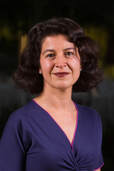 Firouzeh Murray Firouzeh has spent 20+ years marketing tech products in Silicon Valley to consumers and small businesses, both at startups and Fortune 500 companies. She honed her analytical skills working in investment banking at Lehman Brothers and the technology practice of Bain & Company. Since 1998, she has held key marketing roles at Intel (launching the Celeron processor in laptops), eGroups (a startup bought by Yahoo! where she helped build the marketing function), Yahoo! (launching one of Yahoo!’s first freemium products in 2001 and growing revenues from $0 to $15 million in 12 months) and Intuit (maker of Quicken, QuickBooks, and TurboTax). During her 8 years at Intuit, she launched new QuickBooks products, ran customer retention for the division’s largest subscription business (1 million small business customers), and led the first and only rebranding in Intuit's history. She was the recipient of the Outstanding Marketer Award by Intuit Founder Scott Cook. Firouzeh started Palm Drive Marketing in 2011. She provides interim CMO services for venture-backed startups (post Series A) who don’t have a head of marketing yet or who need additional marketing muscle. Her clients have included portfolio companies from Accel, Andreessen, Crosslink, Highland, NVP, Spectrum, and TCV. Firouzeh has spoken at Stanford University’s School of Education (Marketing 101) and the local chapter of the Business Marketing Association (Intuit’s Secret Sauce: Customer Driven Innovation). She is fluent in Spanish and Farsi. She received a BA in Economics from Stanford University and an MBA from the Stanford University Graduate School of Business.  Natalie Omondi Natalie is a results-oriented professional with a track record spanning over nine years in the fields of management consulting, banking, and social impact. With a keen focus on strategy, she possesses an in-depth understanding of market strategy, corporate valuations, strategic planning, negotiations, partnerships, and e-commerce strategy. She has devised and implemented market strategies for small businesses and has actively supported small businesses owned by minorities by partnering with the International Rescue Committee in Atlanta to conduct workshops for entrepreneurial clients. As a management consultant, her work has spanned technology strategy, education, and private equity due diligence. As a consultant, she mapped and developed a blueprint focused on an enterprise-wide change management engagement aimed at integrating AI into existing knowledge management platforms. Beyond her professional pursuits, she has a strong passion for the arts and independent media. She finds inspiration and fulfillment through her involvement in these creative realms. Natalie received a Bachelor of Commerce degree from the University of Windsor and an MBA from Dartmouth College's Tuck School of Business. 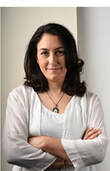 Sue Ozunal Subegum (Sue) Ozunal is a business strategy and growth expert with 26 years of international experience. After receiving her BS in mechanical engineering from Istanbul Technical University and executive MBA from Marmara University and Maine University, Sue worked in multinational companies. In 1997, she became one of the pioneers in business coaching trained exclusively by Michael Gerber - Mr. EMyth. The same year, she founded her own business coaching firm, moved to the US in 2007, and grew it remotely for 21 years. She helped hundreds of small businesses internationally from a variety of industries, including manufacturing, construction, IT, SaaS, e-commerce, child care providers, medical practices, accounting and law offices, promotional products, and retail chains. She has also been mentoring start-ups within non-profits like SCORE, WCEC, Start Small Think Big, and TechUnited: NJ. Sue demonstrates her deep, hands-on experience in helping business owners by establishing innovative business continuity through crisis times, natural disasters, and economic recessions. She has a hard-core entrepreneurial character with strong strategic planning and analytical thinking skills, evidenced by her ability to quickly break down a company into pieces in minutes and put it back together with a growth plan. She is a fast thinker and problem solver who is laser-focused on team building, taking financials under control, and branding. She is an avid change advocate and lover of simplicity in business and life. Sue is originally from Istanbul, Turkey, and has traveled extensively in Europe. With Turkish, English, German, and more recently Arabic and Korean under her belt, she has worked to become a polyglot. She has overcome infertility and has three children in middle and high school. She enjoys running support groups for the National Infertility Association. She loves family round tables as well as basketball, table tennis, walking, cooking and rock music.  Farrin Ripp Farrin worked in the legal industry for nearly a decade, initially as a corporate lawyer specializing in mergers and acquisitions before moving into business development and strategy. She worked closely with senior leadership at a top-tier law firm in Manhattan to develop and implement a global and office strategic plan. She spearheaded task forces across the firm to promote outreach to target clients and industries, increase cross-selling between partners, and increase brand visibility and market presence in New York. More recently, Farrin has worked with small businesses and startups in various industries on market growth projections, pandemic implications, and scalable business opportunities. Farrin is able to develop strong relationships and work collaboratively with clients, senior management, and cross-functional teams. Farrin received a double degree in Law and Commerce from the University of Western Australia and an MBA from Columbia University’s Graduate School of Business. 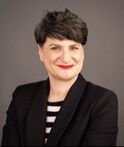 Jodi Robin Jodi Robin is a Strategic Marketing and Communications consultant with a deep appreciation for big-picture dreamers and creative thinkers. Jodi brings to TAP clients over 10 years of marketing and advertising agency experience with agencies including Digitas (formerly Bronner/Slosberg/Humphrey), MRM/McCann Erickson, and LLKFB in strategic planning and account management, as well as a background in consumer education and corporate responsibility. In working with such diverse clients as American Express, Visa, Johnson & Johnson, Sirius Satellite Radio, and Bristol-Myers Squibb, Jodi developed and managed complex, multi-media campaigns from strategic planning through market launch, on time and within budget, while building and nurturing strong colleague and client relationships. As a founding partner of a home organizing and move management business, Jodi knows firsthand what is required to launch a brand and run a company. She combines that knowledge with her big agency experience to help small business owners articulate and achieve their unique vision/business ideas and stand out in their field. Most recently, Jodi has consulted with entrepreneurs in the areas of home improvement and project management, fitness/wellness, pet supplies/training, educational services, and mental health and counseling services. Since leaving the corporate world to start a family, Jodi has developed deep connections in her community. She has extensive experience as a volunteer with not-for-profit, school, and community organizations and is particularly proud of leading a brand new middle school Science Olympiad team to success at state-level competition. Jodi is a graduate of Hamilton College with a BA in Sociology.  Patty Ross Patty has well over 20 years of experience in marketing and has been in the online space since 1998, where she developed an e-commerce program for a gourmet gift company into a million-dollar business. She has spent 19 years helping the wine industry gain traction online and has since branched out to help other industries grow their brands, including financial, legal, health and beauty, motorsports, landscape design, CBD/cannabis, restaurants, education, transportation and logistics, political activism, nonprofits and more. Golden State Marketing and her other business, California Wine Marketing, were founded in 2006. Patty enjoys speaking on various marketing topics to help business owners understand the importance of marketing their brand online and offline. She received her undergraduate degree from Santa Monica City College. 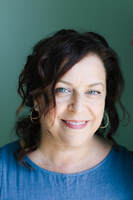 Melissa Schenker Melissa Schenker has combined an MBA with psychotherapy training in order to work with individuals and organizations to create satisfying work situations. She has 20+ years of experience building work/life satisfaction, workplace effectiveness, and developing skills for working with difficult people. She is the co-author of Sweet Relief From the Everyday Narcissist, which helps people understand the dynamics of relating to narcissists and provides strategies to thrive. Melissa has an MBA from the Sloan School of Management at MIT where she focused on innovations in labor/management relations. She has an economics degree from the University of Texas at Austin and maintains an awareness of the economy by trading options. She completed an intensive year-long experiential leadership training program in New York City run by the CORO foundation. Melissa has worked as an internal management consultant for a large government agency and as an operations consultant for Deloitte Touche. She has served in leadership roles on several non-profit boards primarily in food security, education, and quality child care.  Joseph Sciortino Joe is a media professional with over a decade of experience in the business of television and film, developing expertise in strategy, operations, marketing, and data analysis. He is currently the Manager of Content Strategy for Fuse Media, a multi-platform entertainment company. He has been instrumental in building the programming, acquisition, marketing, and editorial strategy for the company's portfolio of TV channels, specifically monetizing content for ad-supported and subscription-based streaming services. Joe is a thoughtful communicator, highly creative, and loves taking on challenging projects and distilling them down into actionable insights for all stakeholders. Joe also leads an initiative called Buy Small that offers underrepresented business owners the opportunity to promote their products or services on Fuse platforms. He leads a cross-functional team of creative, PR, and operations experts and offers business owners strategic marketing advice to drive sales, web traffic, and consumer engagement. Joe received a BA in communications and media production from SUNY Cortland and an MBA from UCLA Anderson School of Management.  Jennifer Servedio Jennifer's passion lies in helping organizations find efficient and effective ways to design programs and systems, both internally and for sales/client services. Jennifer spent much of her early career in Event Planning and Design for Goldman Sachs & Co. She then moved on to manage projects at a small nonprofit, which gave her the desire to help small businesses. She brought that interest to Columbia University's Institute for Nonprofit Management, where she managed residential programs for non-profit executives seeking to learn and develop business management skills. In recent years, Jennifer has continued to gravitate towards organizational roles and projects. She has been involved with various nonprofits as a senior board member and usually sits on their event planning or organization design committees. Currently, as the Events Board Chair for Impact Fairfield County, she brings her knowledge and experience to the grant-making process. Jennifer's most recent job as Head of Operations for Squeeze De Citron, a small business in the fashion sector, allowed her to apply her previous experience and make a significant organizational impact on a growing business by creating processes and procedures for everything from inventory management to sales and customer service. She recently returned to Squeeze to create workflow charts for a few of their business areas to help them streamline their work processes and clearly identify employee roles and responsibilities. She was thrilled to be able to continue to support their work and make an impact on the company's growth and development. Jennifer lives in Greenwich, CT, with her husband, two sons, and two dogs. She loves to be involved with work in the community, but, when she's not out and about, you will find her curled up with a book or cooking with her family.  Megan Shaw Megan is an accomplished professional with a passion for driving innovation. Megan brings a wealth of experience from strategy consulting and early-stage investing. Megan began her career at Accenture Strategy, where she focused on retail strategy and digital health. During her time there, Megan had experience building business cases, accelerating e-commerce growth, creating internal start-ups, and redesigning organizational processes. Building on this foundation, Megan’s career then led her to the realm of organic and inorganic food & beverage investment. In her current role, Megan supports Anheuser Busch’s internal corporate venture arm. This has required both financial due diligence and market research across a variety of sectors. Additionally, Megan has focused on internal inorganic ventures as well as financial analysis of internal investment (e.g., S&M spending, Innovation arms, and various new projects). Megan’s journey from driving digital transformation in retail strategy to pioneering investments in the food and beverage landscape reflects her adaptability, business acumen, and unyielding drive to make a meaningful impact. Megan received a BSBA in Economics & Strategy and Marketing from Washington University in Saint Louis. 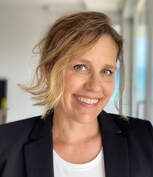 Jennifer Wolfe Jen has over 25 years of operations experience and is motivated by creating growth while calming the tides of changes and working alongside her clients and/or employees. She started her post-MBA career at Booz Allen Hamilton and later enjoyed the excitement of the .com boom working in operations at DoubleClick in NY. She returned to consulting as a favor to a former manager which ended up leading to a 14-year run at Advance Publications, a privately held media company. She held various roles during her time at Advance: (1) one of the first five employees to create a Shared Services Center that supported 26 newspapers across the country, (2) later consulted and served as the primary project lead for the digital transformation work, and (3) finally working as a General Manager serving 3 subsidiaries in Birmingham, Alabama. Jen’s most recent work experience was as COO, and later CAO, at Therapy Brands, a portfolio roll-up of mental health EHRs (technology that manages electronic health records). She served as the liaison between the investor group and the portfolio operating entities. Her chief responsibilities were to successfully onboard newly acquired companies, work alongside their founders, and ensure the strategic objectives were well-defined, attainable, and measurable. More than twenty-two companies were acquired in less than 30 months. During her tenure, Therapy Brands had two recapitalizations with the second one including a sale to KKR for $1.2B. Since moving to the Miami area in 2021, Jen has enjoyed philanthropic work, which includes volunteering as a literacy tutor at Uplift Literacy and volunteering as a canine-assisted therapy team with her long-haired German Shepherd. She recently chaired The Taste of Pace 2023 inaugural fundraiser for Pace Center for Girls, Miami, and subsequently joined its board of directors. Jen received a BA in Psychology from Kenyon College and an MBA from Columbia Business School. 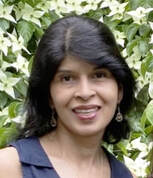 Lavanya Young Lavi’s professional expertise lies in the areas of product development and technical sales for the software industry. She started her career in New York City and Houston at Zai*Net Software Inc., a small bootstrapped startup where she implemented trading and risk management software for the foreign exchange and energy markets. Upon relocating to London, Lavi became a key player in the company's strategic entry into the electricity trading markets in the UK and across continental Europe. She was an instrumental contributor to the company's growth from a fifteen-person startup to its eventual IPO in January 2000 as the 400-person Caminus Corporation (NASDAQ: CAMZ). Subsequently, Lavi moved to Westchester County in New York where she raised her two children and volunteers within her community. These opportunities have included the local PTA, food pantry, Girl Scouts, Council on Race and Equity, and mentorship on an individual level. More recently, she served as Head of Product Development for a web-based business intelligence software provider for the energy data analytics space. Lavi has a strong track record for problem-solving and delivering solutions to address customer requirements, both in the software industry and in the local non-profit sector. Having lived and worked in many countries, she brings a rich multicultural background to the table. Lavi holds a B.A. in International Relations from Mount Holyoke College.  Lora Young Lora's exceptional depth of business knowledge and experience have positioned her as a leading business consultant. As the founder of Pursuit Leadership Company, her mission is to instill balance in all areas of life by empowering individuals with the systems and structures they need to thrive comprehensively. This organization embodies her belief that success extends beyond business and encompasses personal growth. Lora is not only a trailblazer in her field but also a mentor to new professionals and college students, assisting them in their pursuit of balanced leadership. Her profound grasp of analytics and customer needs, derived from her previous roles, has enabled her to craft winning communication strategies that resonate deeply with clients. A University of Illinois at Urbana-Champaign alumna, she holds a BS in Business Communications and is engaged as an MBA pursuant, attesting to her unwavering commitment to continuous growth and learning. With a professional background in business management, she has left her mark on industry giants like Amazon, Nike, and Burberry. Utilizing her sophisticated understanding of business models from these organizations, she has served demographics with tools and resources for executive leadership, both in the professional realm and in the context of life as a whole. Her diverse portfolio of planning and development resources enriches growth strategies and fosters success in all aspects of life, solidifying her role as a true catalyst for positive change.  Clara Yum Clara has over 15 years of growth marketing experience, specializing in B2C e-commerce and subscription-based products. She spent the last 10 years of her career at Audible, an Amazon company, where she established their podcast and influencer channel and eventually moved on to lead the growth of Audible Canada from launch. During her time at Audible, Clara also led the marketing launch of several new product initiatives including a new mobile-friendly, responsive website and App storefront. Prior to that, Clara was at American Express upselling customers to the right product through digital channels that best suited their needs and lifestyle. Clara comes from first-generation immigrant parents who ran a small business so she was exposed to the challenging and rewarding life of being a small business owner. She is passionate about helping small business owners succeed and inherently understands the importance of what that success means for future generations. Clara received a BA in Communications from Boston College and a Certificate in International Business Practice from the Mountbatten Program in London.  Amy Zarin Amy is an accomplished brand strategist who has worked with clients ranging from large corporations to grassroots nonprofits. She began her career in advertising, championing the power of creativity to deliver business results at agencies including Deutsch, Wieden + Kennedy, and Saatchi & Saatchi. Amy’s consumer research background is extensive, encompassing both quantitative and qualitative methodologies. She has also earned a reputation as an inspiring mentor, using compassion and humor to help her direct-reports hone their skills. Amy brings to every collaboration an open mind, a constructive point of view, and a multitude of creative ideas. She has worked on a wide variety of brands large and small, including American Express, Olay, Pampers, Heineken, Ameriprise Financial, JCPenney, and IKEA. Following her career in advertising, Amy transitioned to the nonprofit sector as a communications consultant. She brought empathy and respect for medically underserved communities when crafting education campaigns to help them navigate our complex healthcare system. She also collaborated with grassroots advocates and policy experts in the creation of progress reports targeted to funders, a change agenda of a cross-movement coalition fighting religious restrictions in hospitals, and a toolkit for community members facing the loss of essential medical services due to religious hospital mergers. Presently, Amy helps high school seniors with their college essays through UStrive, an online platform that serves low-income students aspiring to attend college, and volunteers with Horse & Buddy, a nonprofit that provides equine therapies to people with disabilities. Amy holds a B.A. from Tufts University in English and an M.A. from Columbia University in American Studies. TAP consultants speak 23 languages, and fifteen percent speak Spanish. We've served 5% of our clients in Spanish. So, to celebrate Hispanic Heritage Month, we bring you some TAP team members, talking about their work. Watch and share the video below. #hispanicheritagemonth #consultant #consulting #smallbusiness #smallbusinessowner |
About this blogThis blog features some of our client engagements. Categories
All
Archives
March 2024
Categories
All
Become a Consultant
|
|
About Us | Donate | Terms of Use | Privacy Policy | Contact Us
© 2023 The Acceleration Project, Inc. All Rights Reserved. |

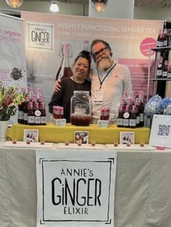
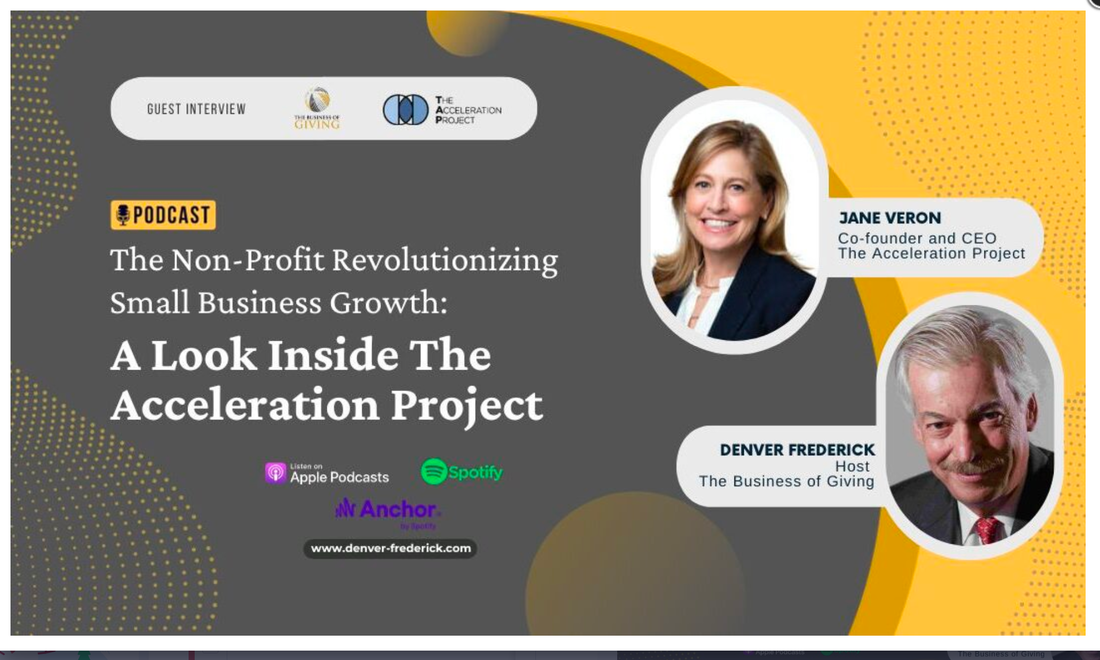
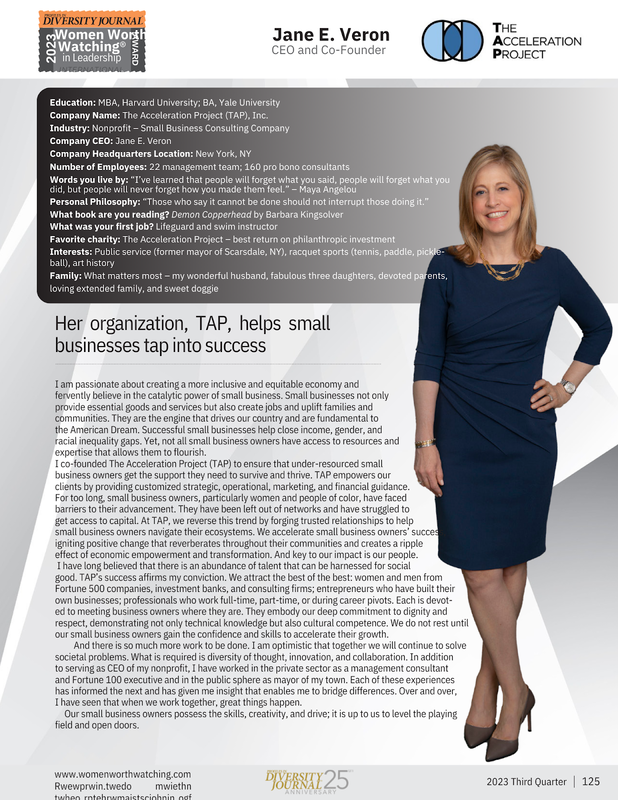

 RSS Feed
RSS Feed
